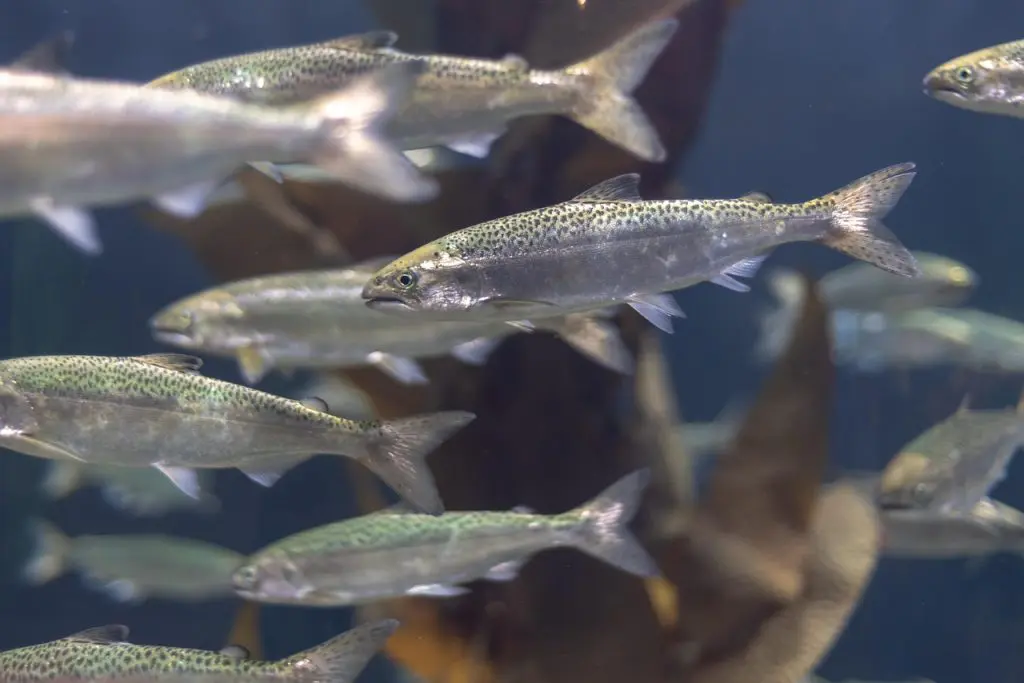
EPA Does Not Believe Firm Near River Responsible for Kill A multi-agency investigation is underway following the discovery of a major fish kill in the River Blackwater, Co Cork, with estimates suggesting over 46,000 fish were killed. While public suspicion has centred around a local creamery, Ireland’s Environmental Protection Agency (EPA) has stated that it […]
A multi-agency investigation is underway following the discovery of a major fish kill in the River Blackwater, Co Cork, with estimates suggesting over 46,000 fish were killed. While public suspicion has centred around a local creamery, Ireland’s Environmental Protection Agency (EPA) has stated that it does not believe the North Cork Co-Op creamery in Kanturk caused the incident.
The fish kill occurred around 12 August, prompting Inland Fisheries Ireland to launch an extensive investigation involving multiple regulatory bodies, including the EPA and the Marine Institute. Scientists have since confirmed that the affected fish suffered severe gill and eye damage, with fungal infections taking hold before death, a clear sign of exposure to a toxic irritant.
Although the source of the pollution is still unknown, the North Cork Co-Op came under scrutiny after the EPA published results of a site inspection conducted the night of the fish kill. The findings revealed that over 362,000 litres of wastewater were discharged into the river within a 10-hour window, with:
Ammonia levels up to 52 times above legal limits, and
Orthophosphate levels 2.5 times over the limit.
However, while the EPA described the creamery’s emissions as severely non-compliant, it explicitly stated that these discharges did not match the nature of damage observed in the fish. The agency confirmed it does not believe the wastewater from the Kanturk facility caused the fish kill.
Despite this, the creamery’s record is under renewed scrutiny. The site was previously on the EPA’s National Priority Sites List, an enforcement list for serious or repeated non-compliance, from 2022 to early 2024. Since June 2024, the EPA has conducted eight inspections, issuing 22 non-compliance notices, including 13 breaches of emissions limits.
The North Cork Co-Op has maintained that its discharges are unrelated to the fish kill, stating the incident began 10km downstream in Lombardstown, and that normal aquatic activity continued near its outflow. The Co-Op has also emphasized its commitment to environmental compliance and ongoing investments in sustainability.
But local anglers and environmental observers remain sceptical.
Anglers PJ Cremin and Ragnar Cherrie, who fish the Blackwater between Kanturk and Mallow, have spent weeks documenting foul-smelling, discoloured water from the creamery’s outfall pipe. Videos shared online show thick scum coating the river and even otters swimming through contaminated water.
Cremin stated, “There’s no salmon, there’s no trout. We saw otters going through backwash. Two weeks later, only one kit. Then the fish kill happened.”
Mr. Cherrie echoed the need for transparency: “We’re not saying this caused the kill—but both discharges go into the same river. The tests are vague, and the damage is done—fisheries, tourism, livelihoods wiped out.”
Connor Arnold, Chair of the Killavullen Anglers Club, added that other industrial sites along the river must also be tested and results published. “We still don’t know what other sites were tested. The response procedures were too slow. There were no public health warnings.”
The fish kill on the Blackwater is one of Ireland’s worst environmental events in recent years. While the North Cork Co-Op has been cleared for now, the high ammonia discharges and repeated licence breaches spotlight systemic weaknesses in monitoring, enforcement, and industrial wastewater management.
The final determination on the cause of the fish kill will rest with Inland Fisheries Ireland, which is compiling data from all agencies involved. Meanwhile, calls grow for a faster, more transparent process, and for environmental protection systems that can prevent such a disaster from repeating.
Experts suggest that events like this highlight the importance of a holistic river basin management approach, in line with the EU Water Framework Directive. This would require coordinating across agriculture, industry, urban planning, and biodiversity goals. Rather than managing pollution sources in isolation, integrated strategies can prevent cumulative impacts like the one seen in Cork.
At All-Ireland Sustainability, we’re committed to building a greener, fairer island, together. Stay informed on the latest environmental initiatives, community action, and policy developments shaping sustainability across Ireland, North and South.
👉 Sign up for our newsletter today and be the first to hear about upcoming events, expert insights, and ways to get involved.
Whether you’re a seasoned advocate or just starting your journey, new members are always welcome.
Subscribe now and be part of the All-Ireland Sustainability network.